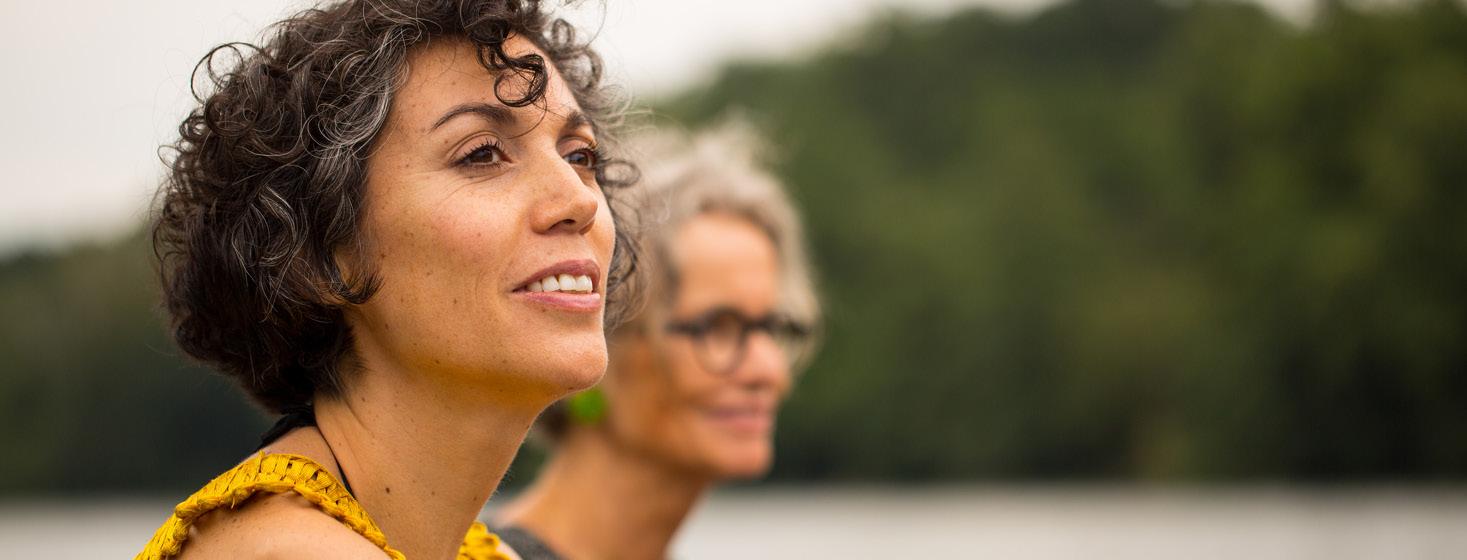
Collagen has made a big boom on the supplement scene – and for good reason! Collagen is the most abundant protein in the body, basically acting like a ‘glue’ that holds us together. Making up around 75% of our skin’s structure, collagen gives our skin that youthful bounce and plump appearance that’s sought after as we age. Along with skin, collagen also plays as significant role in the health and structure of our hair, nails, joints, bones and even our gut too. Unfortunately, things like age as well as diet and lifestyle factors can cause collagen levels to decline, and this can result in thin, sagging skin, wrinkles, stiff joints and brittle nails. So what can you do? Read on for the 7 reasons collagen declines and what you can do to support optimal collagen levels naturally.
1. Aging
Our body naturally produces collagen, however its ability to do so gradually declines as we get older. By about our mid-twenties, our production of collagen starts to drop by about 1% per year and begins to break down faster than we can replace it. Unfortunately, this loss also accelerates as we age, so by the age of 50 we’ve lost around 40% of our body’s collagen. It’s these losses which can cause skin to sag as well as become lined, dry and lose that youthful “bounce”. Aging is a natural process, and while we can’t fight the clock there are many things that we can do to look after and protect our skin for as long as possible. Along with avoiding smoking and reducing sun exposure, eating a nutrient rich and wholefood diet plus supplementing with a high quality collagen formula can help support healthy skin and collagen production.
2. Too Much Stress
Chronic or long term stress is well known to play a role in premature aging. When we’re stressed, our body releases a stress hormone, cortisol, which has shown to breakdown collagen as well as reduce our body’s natural production. If your stress levels are running at an all-time high, turn to mindful activities such as yoga, meditation and breathing exercises to help support your nervous system, as well as your skin in the long term.
3. Smoking
While it’s common knowledge that smoking is bad for our health, it can also have a significant effect on the appearance of our skin. Smoking damages collagen as well as elastin in the body, which work to support our skin’s structure. This can lead to sagging skin, fine lines and wrinkles, and can deplete vitamin C levels in the body which is needed for natural collagen production.
4. Sun Damage
Sun and UV exposure cause damage to the skin at a cellular level, contributing to signs of premature aging. When our skin is exposed to UV light, it can cause a rapid breakdown of collagen due to the production of free radicals and DNA cell damage. UV exposure can also result in a production of certain enzymes in the skin, damaging collagen and elastin fibres and ultimately leading to fine lines and wrinkles. While we all want a bit of fun in the sun, the best way to protect your skin is to limit your sun exposure, always wear sunscreen, and don’t forget a wide brimmed hat and your sunnies.
5. Too much sugar
A high sugar diet is bad news when it comes to the health of our skin. When our body is bombarded with sugar, this can lead to a process known as glycation, where collagen fibres become cross-linked and malformed3. This results in a sort of stiffening and a loss of elasticity and bounce in our skin. Our best tip? Limit refined high sugar foods such as lollies, chocolate, biscuits and ice cream, and focus on wholefoods like fresh fruits and vegetables, nuts, seeds and legumes.
6. Not enough vitamin C
Vitamin C is needed to make collagen in the body. Unlike some animals, humans can’t make vitamin C, so the only way we can get it is through our diet. If we’re not getting enough, our collagen production as well as our overall skin health can be affected. Research has shown that diets high in vitamin C from fresh fruits and vegetables, as well as supplementing with vitamin C can increase collagen production resulting in less wrinkles and signs of aging.
7. It’s in your DNA.
Our unique genetic makeup is an important factor that determines how well our body can produce collagen. However, like aging, the genes we’re born with aren’t something we can change. All we can do is focus on what’s within our control, and practice diet and lifestyle measures to look after the skin we’re in. Eating a healthy, wholefood and vitamin C rich diet, limiting sugar and sun exposure, and avoiding smoking is the best way to promote beautiful skin and collagen levels long term.
Two Islands Collagen Beauty Powder contains a super high dose of quality, sustainably sourced type 1 marine collagen. With added vitamin C, Two Islands Collagen works fast from the inside out to support healthy, glowing skin, super strong hair and nails, and good gut health too. Simply mix into your morning coffee, herbal tea, water, smoothie or any other liquid.

